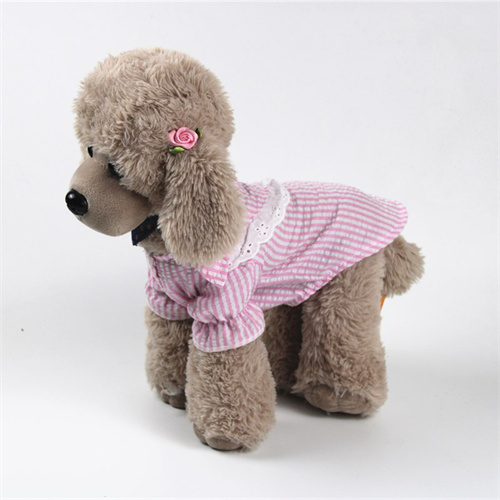Author: Wang Wang Cheng-Wan
1. Over-interpreting the emotions and reactions of dogs — “My dog is so good that he will comfort me” Many behaviors of dogs tend to be instinctive. They don’t understand human language and don’t have strong logical thinking ability. They can only connect what is happening at the moment with their own behavior. Although they are sensitive to emotional changes, it does not mean that they really understand human thoughts. Many female pet owners tend to impose their emotions and expectations on their dogs. For example, when they are very sad and the dog licks their hand, they will naturally spread their emotions to the dog, thinking that the dog is caring for them. In fact, it is just a simple coincidence. This over-interpretation can lead us to unconsciously reinforce dogs’ bad behaviors in our daily lives.dog collar manufacturers china
2. Unclear and incomplete punishment and reward — “My dog was beaten by me, and the more he is beaten, the more he will not obey me” The purpose of punishment is to reduce the frequency of bad behavior and enhance the frequency of good behavior in a disguised way. If the punishment is not thorough, it will be meaningless. Many owners want to punish their dogs when they make a mistake, but they don’t want to cause actual stress and harm to their dogs. At this point, they would pretend to be angry, put their hands up and yell at the dog. After this feint was repeated, the dog would think that the master was playing a game with him, and instead of stopping the bad behavior, the dog would become even more excited and happy. For example, a lot of women with large dogs, dog collar manufacturers china when the dog has behavioral problems, they will spank the dog, and the punishment is minimal, it’s no different to petting a big dog with thick fur, and the dog will think, “I’m rewarding you for doing this, he’s petting me, I’m comfortable,” and so on. I’m not advocating that the ultimate goal is to punish the dog. The function of punishment is to restrain bad behavior and lead to more good behavior, not constant punishment. It is the same with rewards.dog collar manufacturers china
Many owners cannot release their emotions when they are rewarded. In fact, what we need to convey to dogs is wrong is wrong, and we will be very strict. Yes, yes, yes. We’ll be very happy. There is no human dialectic in the thinking of dogs. There is black and white, right and wrong. They do not weigh, and there is no “gray area”. 3. There is no clear concept of space management — “Can go to bed on the sofa or even sit on the same level” Many owners when raising dogs, especially small and medium-sized dogs, often hold their dogs, let them go to bed, on the sofa or even on the dinner table, and treat the dogs as their friends or children. I understand the need to love and nurture them. But no matter what kind of pet you have, you need to do a good job of space management. Not doing a good job of space management means that the owner of the dog granted unlimited, high tolerance of permission. Dogs inherit genes from wolves and are class-conscious. In other words, if you were the boss of the company, would your employees still treat you like the boss when they had the same rights as you when they could walk in and out of any part of the company? Could he have had other ideas? 4. There is no unified management under the condition of raising multiple family members — “The traditional rearing way of strict father and loving mother”. The dog-raising groups I have come into contact with are mainly male and female friends raising a pet together, or a family of three raising a pet together. The way and attitude towards dogs are very tolerant and even pampered and anthropomorphic. On the contrary, men in the family treat the dog in an overly rational way. They think the dog is just a brute, an animal, and should not spend too much time and energy to manage him. If he does not obey, he will use the most primitive violent means to force the dog to be restrained. In families with children, the children often do not know the habits of the dog, and contact with the dog out of curiosity and love. Unconsciously, the dog may even feel afraid, which leads to the dog’s defense, attack and attack the family. All of these approaches are extreme and lead to relative obedience: obedience to only one member of the family and the establishment of a class based on how the rest of the family treats him. If we want a dog to be able to obey each member of the family, we need to have a general unity of the whole concept of breeding and management.
Post time: Dec-08-2022

